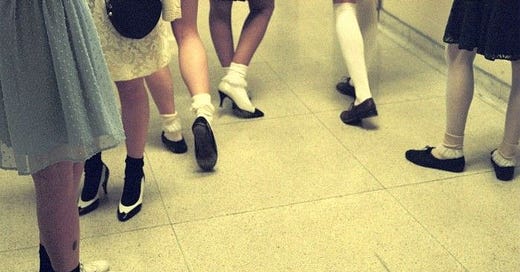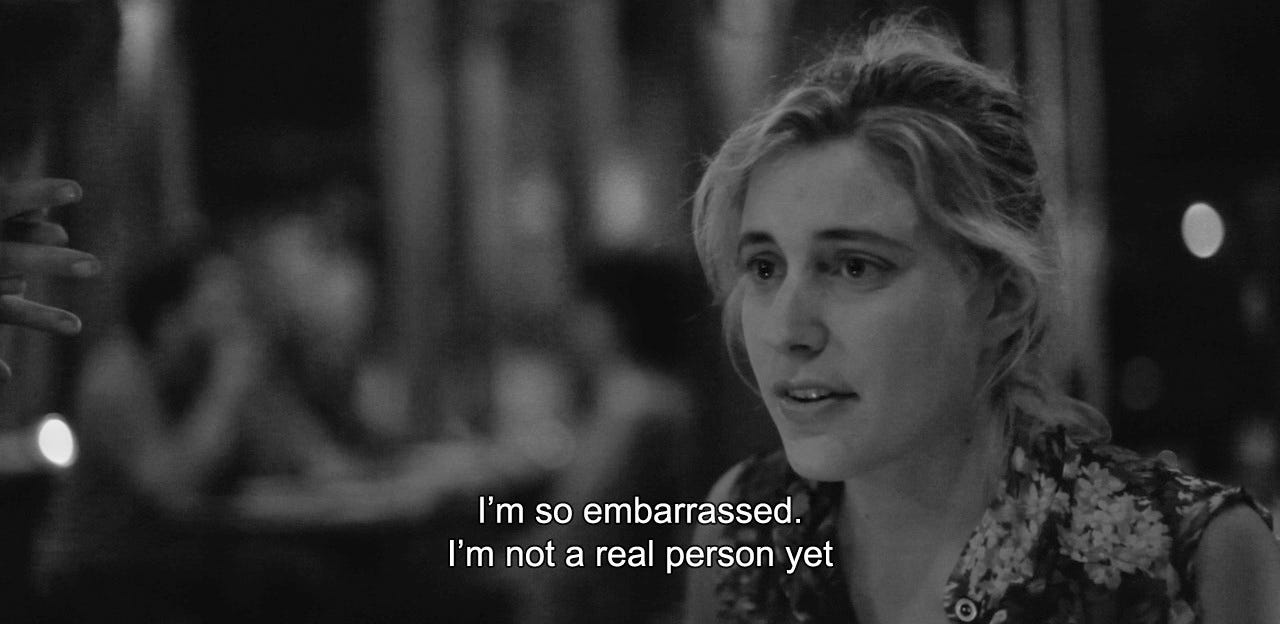How can a person know everything at eighteen
But nothing at twenty-two?
— “Nothing New”, Taylor Swift & Phoebe Bridgers
I’m a firm believer in the notion that your twenties are your second chance at teenagehood. This is coming from someone who used to view her twenties as the beginning of the end, and did everything in her power to prolong her teen years. I used to be deathly terrified of not having the first digit of my age be filled by a “1”, and convinced that the experiences I’d make as a teenager and the people I made connections with during that time in my life mattered more than anything. I’d always heard that your teen years are your most formative, and that’s not technically wrong, but you’re actually stuck in a period of transformation where all your time is spent gathering experiences and evolving into the best version of yourself, instead of simply being it.
I didn’t really realize how much I had grown since my teenage years until my sister turned sixteen a couple years ago (and she’s actually turning eighteen in a couple days). It’s like I somehow felt closer to being mentally sixteen than twenty-one, up until she turned sixteen, and it hit me all at once how much I’ve changed since being that age. Of course, I was the same in the ways that mattered; in my core qualities and traits that remain throughout all of my phases; but I realized that I had done more maturing and growing than I initially thought.
As little kids, we’re guided by the adults in our lives—for the better, and sometimes, in tragic cases, the worse. But generally, we are thrown into situations and told what to do. We are meant to go along with the directions we are given, trusting that they know what’s best, and in place of facing any consequences. Decisions are, for the most part, made for us: where we go to school, what our extracurriculars will be, what clothes we are allowed to wear, what we’re going to have for breakfast, lunch, and dinner; the works. Little by little, as we grow into teenagers who crave independence more than anything else, we begin to make decisions for ourselves—or at least, feel the overwhelming urge to. The thing about being a teenager, itching to be free of dependence on our parents is that we are not necessarily ready to be relinquished of their provision, no matter how strong the conviction is to do the opposite. So, while we can’t make big decisions like where we live, where we go to school, or what our chores are, we learn quickly the things we are able to control: our interests, the people we surround ourselves with, and the scenes we get involved in.
But as we become taller, smarter, and learn for ourselves what we genuinely do (and do not) enjoy, we gain more and more independence when it comes to the realm of choice. We can transport ourselves to desired destinations, choose which college we want to attend, what hobbies and non-academic activities we want to partake in, experiment with personal style, and figure out meals for ourselves.
Another category in our lives that experiences a certain shift as we grow older is friendship. As I neared my twenties, I had the overwhelming anxiety which revolved around the possibility of running out of time to make lifelong friends that I could say “I’ve known them since [insert teenage year here]!”. I had this twisted misconception that if I met and became friends with someone in my twenties, I would always end up in second to the friends they kept from their childhood, no matter how close we got. I’m only twenty-three, but in my experience so far, I’ve learned that it doesn’t actually even matter, and that we’re all afraid of the same things. Once I acknowledged that most of us have the same fears and long for the same thing—community—it became easier for me to let new loves into my life, in the form of friendship.
When we’re younger, we’re grouped together because of how old we are or what grade we are in, not necessarily by community and interests. But as we get older, we begin to enter spaces that are more catered to what we actually enjoy; gravitating toward people who are more like-minded to yourself and allowing for a more genuine, lifelong bond to form. Discovering what we are truly passionate about and re-examining our values begins to serve as a compass for navigating new social circles. But I also think it’s important to recognize that this detox doesn’t necessarily mean completely abandoning our childhood friendships. The right people, those who have grown along with us, will still have dibs on their bedroom in the homes of our minds. These friendships that have been tested by time and shared history now have the opportunity to evolve and adapt to the ever-changing circumstances that are our twenties, eliciting a sense of stability and nostalgia throughout the transformations of young adulthood. In other words, the right people will find a way to stay.
Throughout my twenties so far, I have found myself surrounded by so much love, luck, and chance; alongside a tapestry of relationships—some old, some new—that make up a mosaic of my identity. The people I’ve chosen to surround myself with are mere reflections of my own character, and I am a reflection of them. And the people I have yet to meet and grow to love will be, too.
It is still an age of discovery and ingenuity, it’s just that this time, there are the added factors of maturity and independence. I’ve begun to take on a new mindset that has made me feel better about getting older, and has shed new light on the process of aging in my twenties: that these years are actually an opportunity to entertain and satisfy the teen that still lives inside of me. I’m old enough to be considered an adult and all the advantages that come with being one, while still having the advantage of youth on my side.
The greatest part about being in your twenties is that you’re still young enough that it’s okay to be clueless, because of the new challenge of adulthood to navigate, but you’re old enough to have a more concrete idea of who you are, or who you want to be. You have more control; more of a handle on your identity. You’re more sure about what you like and dislike, what you love and what you hate. You’ve had enough experience to know what absolutely not to do, but not enough so that you know everything. There are still mistakes out there to be made, which is equal parts terrifying and exciting.
Your twenties are nothing to be afraid of. This new period of life is not a curse, or something to be dreaded, but instead, a gift: it is your second chance at teenagehood. I am choosing to take that chance, and hold fast to it. It won’t be perfect, and it hasn’t been by a long shot, but I know who to lean on and who can break my fall when the unexpected inevitably happens. I’m going to figure it out. We all will.
I’m not a real person yet, but I’m going to be.







the essay i didn't know i needed until i read it! thank you thank you thank you for putting some of my deepest feelings into beautifully written words. i teared up a bit reading this, especially what you wrote about friendship. there seems to be such a pressure to make lifelong friends, meet your bridesmaids, etc., but realizing that everyone deals with that pressure and at the end of the day, the people you're meant to meet will come into your life, has been so important to making the meaningful (but maybe not lifelong) friendships you wrote about. <3
i need to save this for when i turn 20 and i’m terrified it’s all over—just like i was when i turned 18 and just like i was when i turned 13 and just like i was when i turned 10